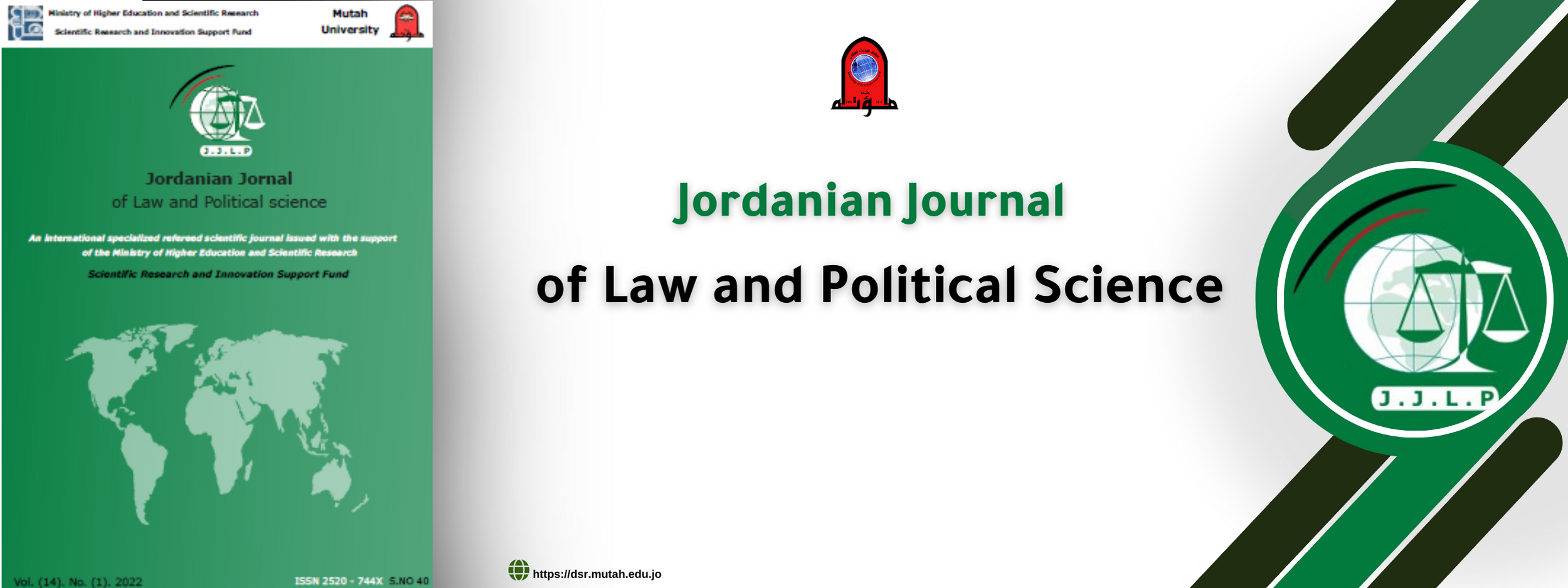The Legal Guidelines for the Oath of Non-Falseness in acknowledgement According to the Provisions of Jordanian Law
DOI:
https://doi.org/10.35682/jjlps.v17i4.906Keywords:
oath, Acknowledgement, Lying, swearingAbstract
The research aims to develop a comprehensive framework for the topic of the oath of non-falsehood in acknowledgment, with the intention that legislators may be guided by it when reviewing the Evidence Act and clarifying the practical ambiguities surrounding its application. The study employed an analytical approach, dividing it into two sections: the first dedicated to the provisions of the oath of non-falsehood in acknowledgement and the second to its effects.
The research findings include the judiciary invalidating some provisions of the oath of non-falsehood in acknowledgement, as stated in Article 1589 of the Civil Procedures Code, highlighting these provisions and their specific nature. It delves into the assumptions guiding them, the forfeiture of rights, the necessity of informing the adversary of their rights, and the impermissibility of their rejection. The judiciary also annulled the provisions of swearing and renouncing the oath regarding the decisive oath of non-falsehood in acknowledgement.
The researcher recommends organizing the oath of non-falsehood in acknowledgment in the Evidence Act, specifying its nature, assumptions, permissibility of forfeiture, and impermissibility of rejection. Furthermore, the study emphasizes the impact of swearing or renouncing the oath.







